Entries in most EBacc subjects increased…
Although there was a small reduction in the number of 16 year olds in the UK in 2016 compared to 2015, entries in most EBacc subjects increased. Entries in core and additional science increased by the greatest margin as schools continue to switch pupils out of the BTEC science qualification that does not qualify as an EBacc subject.
The exception to these increases is in modern foreign languages. Entries in French and German fell, although there was a small increase in Spanish. This shows that schools are largely aiming to fill the EBacc slots within Progress 8 with science and humanity subjects. They would argue that shortages of language teachers make it difficult to rapidly increase provision.

…But A*-C pass rates fell
Increased numbers of entries in EBacc subjects has been accompanied by a dip in the percentage of entries awarded grades A*-C. This is a consequence of a disproportionately larger increase in entries among pupils with lower levels of prior attainment.
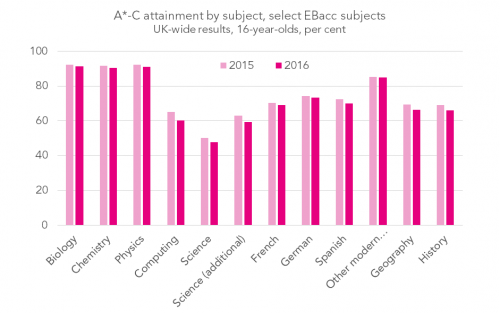
Entries in most non-EBacc subjects fell
Entries in most other subjects fell in 2016, but it is important to keep the magnitude of the falls in perspective. The fall in art and design subject entries reversed a long trend of increasing entries, bringing entries back to around 2013 levels. Drama is the only creative art with an entry rate having fallen below the 2013 level.
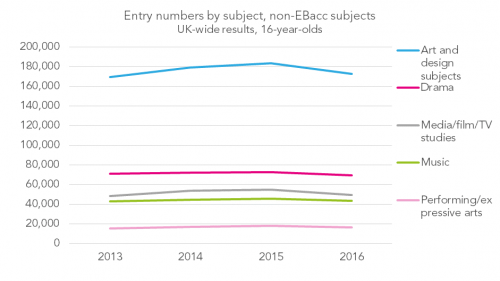
In the other non-EBacc subjects there are no consistent reasons for changes in entry rates. As we write in an accompanying post, religious studies entries have held up as schools switch from the short to the full course GCSE, with many continuing to require all students to sit the subject.
Design and technology was once a compulsory Key Stage 4 element, which in part explains its continued long-term decline. Entries in ICT are now rapidly falling following the inclusion of GCSE computing in the EBacc.
One subject that is an exception to these falls is PE, where entries have continued to rise. In a previous post we showed that GCSE entries in many of these minor non-EBacc subjects have risen from 2013 onwards as schools switch out of non-GCSE equivalents. As this switching process draws to a close, it will be interesting to see how well these subjects fare in the future.



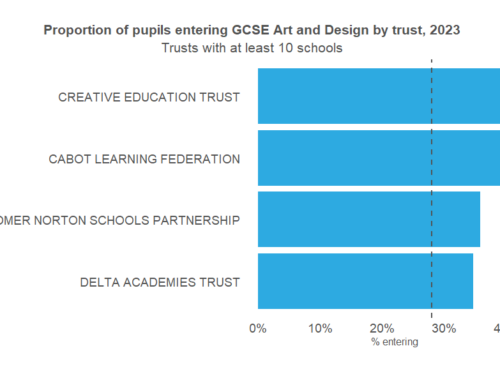
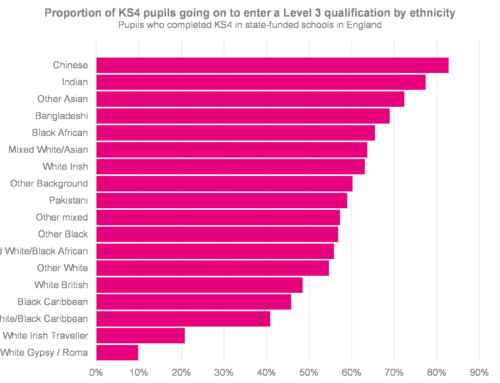
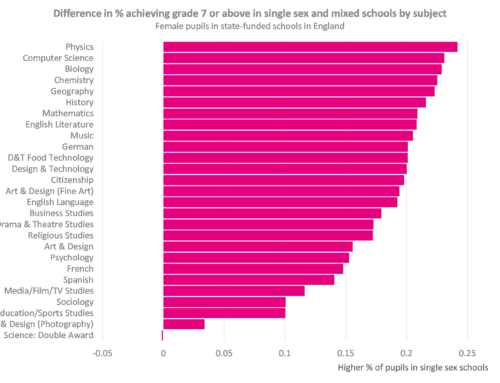
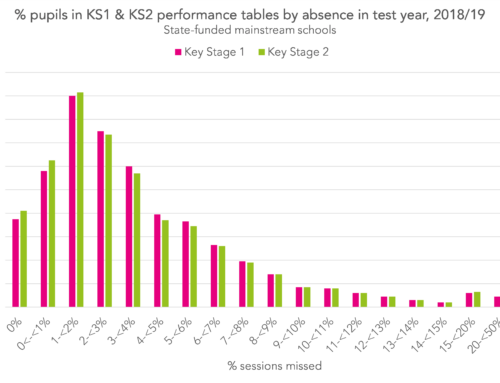
Of course one other reason that s hols are using humanities and science (perhaps switching from btec) to fill the EBacc bucket is that MFL GCSEs are graded more harshly than other subjects. That is, all other things being equal, a student will do better in, say, gcse history than gcse geography.
It is something OFQUAL have been aware of for a few years and are a timely looking at now.
Agreed. The severity of grading in MFL has been an issue for years. See this from 2007 for example http://dera.ioe.ac.uk/8200/1/QCA-07-3098_GCSE_French_mar07.pdf